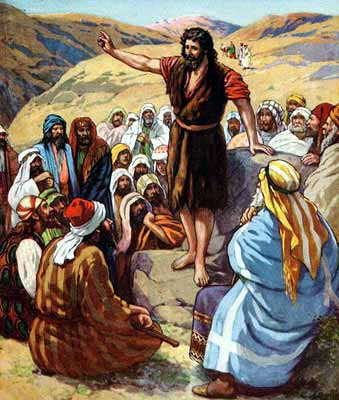January 7, 2000.
Jesus said, “Yes.” “I say unto you, that Elijah is come already, and they knew him not, but have done unto him whatsoever they desired. Likewise shall also the Son of man suffer of them. Then the disciples understood that he spoke unto them of John the Baptist” (Matthew 17:12,13).
John himself said, “No.” “This is the record of John, when the Jews sent priests and Levites from Jerusalem to ask him, Who are you?… Are you Elijah? And he said, I am not” (John 1:19-21).
Who was right? Jesus or John? The angel Gabriel solved the problem when he said: “Elizabeth shall bear you a son, and you shall call his name John… And he shall go before Him in the spirit and power of Elijah, to turn the hearts of the fathers to the children” (Luke 1:13-17). Gabriel obviously had Malachi 4:5,6 in view.
Gabriel said that John came “in the spirit and power of Elijah.” With this insight, we can harmonize the statements of Jesus and John. Jesus was saying, “Yes, John is the fulfillment of the Elijah prophecy.” John was saying, “No, I am not Elijah–physically.” We can only surmise why John answered that way. But there is no guessing necessary with Jesus’ and Gabriel’s statements. Both tell us that John the Baptist was the fulfillment of the Elijah prophecy. And Gabriel gives the key: “in the spirit and power of.”
Many prophecies of the Messiah and His Kingdom can only be correctly understood by applying this God-given key: “in the spirit.” Gabriel says, in effect, “Do not look for a physical fulfillment; rather look for a spiritual fulfillment.” Only in this way can many Old Testament prophecies be harmonized with New Testament reality.
